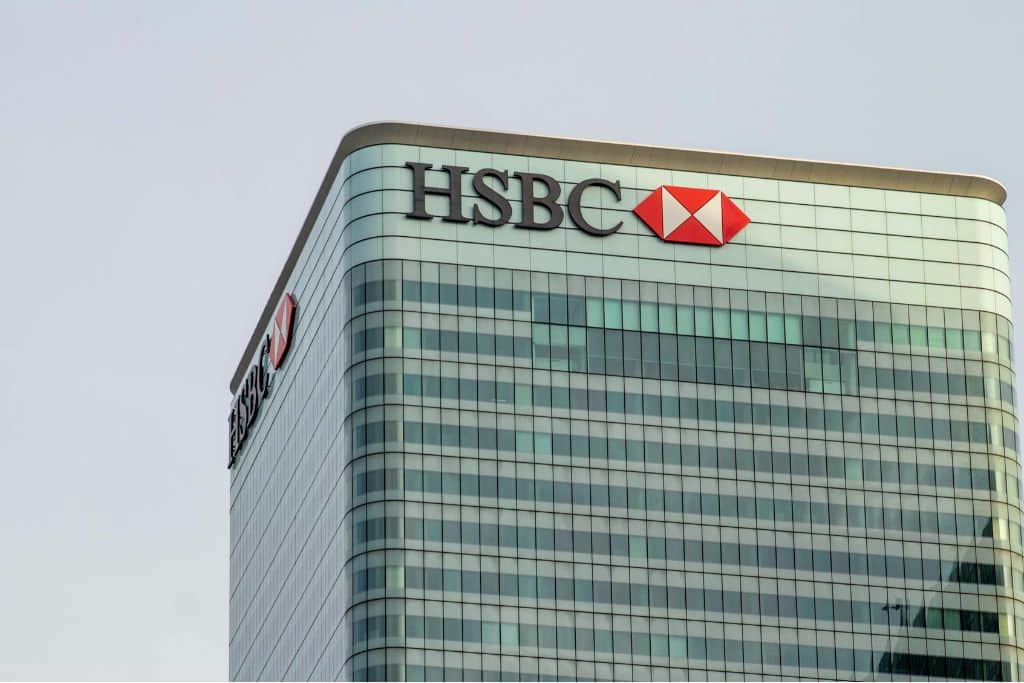The Net-Zero Banking Alliance, set up in 2021 to encourage financial institutions to limit the environmental footprint of their operations and push toward achieving net-zero emissions by 2050, lost nearly 20 of its largest members so far this year.
—
HSBC, one of the world’s largest banking and financial services organizations, is withdrawing from the industry’s largest climate alliance, following an exodus by some of its largest members earlier this year.
London-headquartered HSBC announced the exit in a statement on Friday.
“The Net Zero Banking Alliance played a role in developing guiding frameworks to help banks establish their initial target-setting approach. With this foundation in place, and as we work towards updating and implementing our Net Zero Transition Plan later in 2025, we, like many of our global peers, have decided to withdraw from the NZBA,” the statement read.
The UN-sponsored initiative was set up in 2021 by former Bank of Canada Governor Mark Carney to encourage financial institutions to limit the environmental footprint of their operations and push toward achieving net-zero emissions by 2050.
HSBC’s exit comes on the heels of a trend where several major Wall Street banks are stepping back from climate initiatives. The alliance currently counts 127 banks across 44 countries, down from 144 banks in October 2024, according to its website.
The six biggest banks in the world’s largest economy – Goldman Sachs, Wells Fargo, Citi Bank, Bank of America, Morgan Stanley, and JPMorgan – quit the alliance earlier this year, and Canada’s six biggest banks followed suit shortly after.
All banks have insisted their decision would not impact their decarbonization pledges, with HSBC saying it will “remain resolute in this long-term ambition and in supporting our customers to finance their transition objectives.”
However, analysts say the moves send a clear signal to the market that climate change has become even less of a priority for financial institutions.
Jeanne Martin, Co-Director of Corporate Engagement at ShareAction, told Bloomberg that the company’s exit marks “yet another troubling signal around the bank’s commitment to addressing the climate crisis.” The London-based non-profit brought together a group of HSBC investors earlier this year to ask the bank to reaffirm its support for cutting CO2 emissions amid concerns that it was backing away from its climate pledges.
Meanwhile, the Net-Zero Banking Alliance reaffirmed its commitment to continue supporting its members in their journey to net zero
“Following a powerful mandate renewal and endorsement of its future direction from member banks in April this year, NZBA is helping facilitate the enabling conditions needed for banks’ clients to invest in the net-zero transition. In the last two months alone, this has included work on policy engagement, transition finance, and convening leaders from different sectors to increase understanding and accelerate progress,” a spokesperson for the alliance said.
“As the world urgently seeks to achieve net zero emissions by 2050, NZBA is on the strongest possible footing to support members’ continued progress on independent business strategies that are enabling the shift towards a net-zero economy,” the spokesperson added.
Featured image: Yusuf Miah/Pexels.
You might also like: BlackRock Quits Major Net Zero Alliance As Number of Wall Street Lenders Shying Away From Sustainability Efforts Grows
This story is funded by readers like you
Our non-profit newsroom provides climate coverage free of charge and advertising. Your one-off or monthly donations play a crucial role in supporting our operations, expanding our reach, and maintaining our editorial independence.
About EO | Mission Statement | Impact & Reach | Write for us








